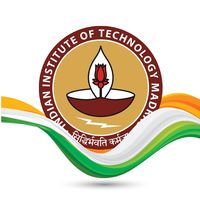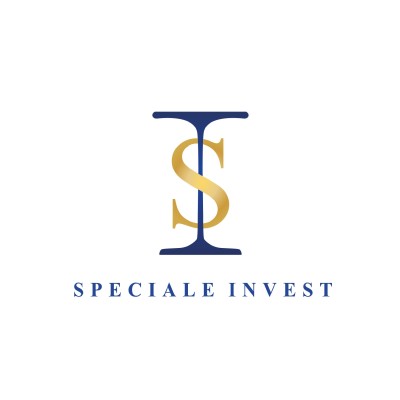India's Innovation Engine Accelerates: Insurtech and Space-Tech Secure Key Investments
July 30, 2025, 3:36 am

Location: India, Tamil Nadu, Chennai
Employees: 11-50
Founded date: 2001
Total raised: $61.46M
India's innovation sector thrives as Bharatsure, an insurtech pioneer, secures Rs 6 Cr for expanding its embedded and group insurance offerings. Concurrently, space-tech innovator Inbound Aerospace raises $1 Million to advance reusable re-entry spacecraft for microgravity research. These strategic investments underscore a robust venture capital landscape propelling cutting-edge Indian startups. Both companies target critical market needs: efficient insurance infrastructure and post-ISS microgravity access. This dual funding surge signals strong investor confidence in India's burgeoning deep tech and fintech domains, positioning the nation as a global innovation hub. Growth, technological advancement, and market disruption are key outcomes.
Venture capital flows into India's dynamic startup landscape. Two distinct sectors recently captured significant investment. Insurtech innovator Bharatsure secured crucial funding. Space-tech pioneer Inbound Aerospace also completed a successful funding round. These investments highlight India's rising status as a global innovation hub. They demonstrate investor confidence in cutting-edge Indian technology.
Bharatsure, an insurtech startup, recently closed a Rs 6 crore funding round. Inflection Point Ventures led the investment. Capital A and Atrium Angels also participated. This capital injection fuels Bharatsure's ambitious growth plans. The company focuses on expanding its insurance infrastructure. It aims to broaden its group and embedded insurance products nationwide.
Bharatsure operates an Infrastructure-as-a-Service (IaaS) platform. It was founded by Anuj Parekh and Sanil Basutkar. This platform empowers businesses. It serves small and medium enterprises (SMEs). Partner-led ecosystems also benefit. They can seamlessly integrate group and modular insurance into their offerings. This simplifies insurance access for many.
The company's business model is efficient. It partners with organizations. It provides scalable insurance infrastructure. Employee benefits and wellness solutions are key services. Revenue streams include policy distribution. Premium commissions contribute significantly. Value-added insurance technology services also generate income. Bharatsure streamlines complex insurance processes. It makes coverage accessible and integrated.
Bharatsure demonstrates significant market traction. It boasts a strong Google rating. Over 1,500 stations are active. More than 70,000 drivers are covered. Its network spans 50 cities. The company has covered over 200,000 lives. It processed 10,000 claims. These numbers showcase its operational scale and impact. Bharatsure reported breaking even at CM3. Revenues doubled in FY25. The company projects reaching Rs 100 crore in revenue by FY28. This signals robust financial health and aggressive growth targets.
Strategic partnerships expand Bharatsure's reach. A recent collaboration with Battery Smart exemplifies this. Battery Smart is an EV battery-swapping network. This partnership introduces natural disaster insurance for station partners. Coverage includes fires, floods, earthquakes, and personal accidents. This tailored coverage addresses specific industry needs. It offers vital protection in a growing sector. Bharatsure competes with other insurtech players. These include Pazcare, BimaKavach, and SecureNow.
Meanwhile, Inbound Aerospace, a space-tech startup, also secured funding. It raised USD 1 million in a pre-seed round. Speciale Invest led this investment. Piper Serica provided additional support. This funding accelerates critical development. It targets the company's autonomous re-entry spacecraft research. Key subsystems will undergo validation. The capital helps achieve critical design milestones.
Inbound Aerospace was founded in 2025. Its founders are Aravind I B, Vishal Reddy, and Abhijit Bhutey. The startup specializes in reusable re-entry vehicles. These vehicles support in-orbit experiments. They also facilitate microgravity manufacturing. The International Space Station (ISS) approaches retirement in 2030. Inbound Aerospace's technology addresses a growing void. It provides essential microgravity infrastructure.
Microgravity environments are difficult to replicate on Earth. Inbound Aerospace's spacecraft enables repeatable returns. It offers cost-effective payload recovery from orbit. This capability supports in-space manufacturing. It boosts critical research. The company's technology facilitates breakthroughs. Life sciences and material sciences stand to gain. Extended exposure to microgravity is vital for these advancements.
Inbound Aerospace emerged from IIT Madras. It was initially pre-incubated at IITM Nirmaan. It now operates from the IIT Madras Incubation Cell. The company garnered international recognition. It was the sole Indian finalist at Japan's S-Booster 2025 competition. Its first mission is slated for 2028. Inbound Aerospace aims to be a key enabler. It seeks to drive space-based innovation for Earth-bound industries. The company aligns with India's Bio3E policy (2024). It caters to growing interest in space-enabled pharmaceutical and biotech research.
These funding rounds underscore a vibrant Indian startup ecosystem. Investors are keenly eyeing both fintech and deep tech. Bharatsure's success reflects a booming embedded finance market. Businesses increasingly seek integrated solutions. Simplifying insurance drives adoption. This reduces operational overhead for companies. It expands coverage for individuals.
Inbound Aerospace's investment signifies a maturing space economy. Private players are crucial to its growth. India's "new space" policy encourages private participation. Developing reusable re-entry capabilities is strategic. It lowers costs for space access. It unlocks new possibilities for commercial research. It supports advanced manufacturing in orbit.
Overall, these investments demonstrate strong confidence. They validate India's entrepreneurial talent. They support the nation's technological prowess. Both Bharatsure and Inbound Aerospace are poised for significant impact. They address pressing market needs. They represent the innovative spirit driving India's economic future. The nation continues its ascent as a global leader in technology and innovation.
Venture capital flows into India's dynamic startup landscape. Two distinct sectors recently captured significant investment. Insurtech innovator Bharatsure secured crucial funding. Space-tech pioneer Inbound Aerospace also completed a successful funding round. These investments highlight India's rising status as a global innovation hub. They demonstrate investor confidence in cutting-edge Indian technology.
Bharatsure, an insurtech startup, recently closed a Rs 6 crore funding round. Inflection Point Ventures led the investment. Capital A and Atrium Angels also participated. This capital injection fuels Bharatsure's ambitious growth plans. The company focuses on expanding its insurance infrastructure. It aims to broaden its group and embedded insurance products nationwide.
Bharatsure operates an Infrastructure-as-a-Service (IaaS) platform. It was founded by Anuj Parekh and Sanil Basutkar. This platform empowers businesses. It serves small and medium enterprises (SMEs). Partner-led ecosystems also benefit. They can seamlessly integrate group and modular insurance into their offerings. This simplifies insurance access for many.
The company's business model is efficient. It partners with organizations. It provides scalable insurance infrastructure. Employee benefits and wellness solutions are key services. Revenue streams include policy distribution. Premium commissions contribute significantly. Value-added insurance technology services also generate income. Bharatsure streamlines complex insurance processes. It makes coverage accessible and integrated.
Bharatsure demonstrates significant market traction. It boasts a strong Google rating. Over 1,500 stations are active. More than 70,000 drivers are covered. Its network spans 50 cities. The company has covered over 200,000 lives. It processed 10,000 claims. These numbers showcase its operational scale and impact. Bharatsure reported breaking even at CM3. Revenues doubled in FY25. The company projects reaching Rs 100 crore in revenue by FY28. This signals robust financial health and aggressive growth targets.
Strategic partnerships expand Bharatsure's reach. A recent collaboration with Battery Smart exemplifies this. Battery Smart is an EV battery-swapping network. This partnership introduces natural disaster insurance for station partners. Coverage includes fires, floods, earthquakes, and personal accidents. This tailored coverage addresses specific industry needs. It offers vital protection in a growing sector. Bharatsure competes with other insurtech players. These include Pazcare, BimaKavach, and SecureNow.
Meanwhile, Inbound Aerospace, a space-tech startup, also secured funding. It raised USD 1 million in a pre-seed round. Speciale Invest led this investment. Piper Serica provided additional support. This funding accelerates critical development. It targets the company's autonomous re-entry spacecraft research. Key subsystems will undergo validation. The capital helps achieve critical design milestones.
Inbound Aerospace was founded in 2025. Its founders are Aravind I B, Vishal Reddy, and Abhijit Bhutey. The startup specializes in reusable re-entry vehicles. These vehicles support in-orbit experiments. They also facilitate microgravity manufacturing. The International Space Station (ISS) approaches retirement in 2030. Inbound Aerospace's technology addresses a growing void. It provides essential microgravity infrastructure.
Microgravity environments are difficult to replicate on Earth. Inbound Aerospace's spacecraft enables repeatable returns. It offers cost-effective payload recovery from orbit. This capability supports in-space manufacturing. It boosts critical research. The company's technology facilitates breakthroughs. Life sciences and material sciences stand to gain. Extended exposure to microgravity is vital for these advancements.
Inbound Aerospace emerged from IIT Madras. It was initially pre-incubated at IITM Nirmaan. It now operates from the IIT Madras Incubation Cell. The company garnered international recognition. It was the sole Indian finalist at Japan's S-Booster 2025 competition. Its first mission is slated for 2028. Inbound Aerospace aims to be a key enabler. It seeks to drive space-based innovation for Earth-bound industries. The company aligns with India's Bio3E policy (2024). It caters to growing interest in space-enabled pharmaceutical and biotech research.
These funding rounds underscore a vibrant Indian startup ecosystem. Investors are keenly eyeing both fintech and deep tech. Bharatsure's success reflects a booming embedded finance market. Businesses increasingly seek integrated solutions. Simplifying insurance drives adoption. This reduces operational overhead for companies. It expands coverage for individuals.
Inbound Aerospace's investment signifies a maturing space economy. Private players are crucial to its growth. India's "new space" policy encourages private participation. Developing reusable re-entry capabilities is strategic. It lowers costs for space access. It unlocks new possibilities for commercial research. It supports advanced manufacturing in orbit.
Overall, these investments demonstrate strong confidence. They validate India's entrepreneurial talent. They support the nation's technological prowess. Both Bharatsure and Inbound Aerospace are poised for significant impact. They address pressing market needs. They represent the innovative spirit driving India's economic future. The nation continues its ascent as a global leader in technology and innovation.

